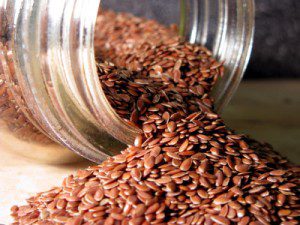Guest writer for Wake Up World
Ovarian cancer is one of the most deadly diseases out there. It is the fifth leading cause of cancer death among U.S. women — an astounding 14,000 women out of the 23,000 diagnosed each year, die. Ovarian cancer tends to be aggressive and generally has very few symptoms until it reaches an advanced stage.
Fortunately, several natural remedies have proven to be exceptionally useful in both preventing and curing this silent killer. Ginger, ginkgo biloba, green tea and flaxseed are all remarkably effective at destroying ovarian cancer cells and tumors — hindering proliferation and increasing survival rates dramatically.
Using food as medicine
Diet is extremely influential in preventing as well as healing ovarian cancer. Beyond consuming an abundant variety of fresh produce and limiting dairy, meat and sugar, certain foods specifically target ovarian cancer cells — demonstrating extraordinary success in defeating this life-threatening disease.
[pro_ad_display_adzone id=”110028″]
Ginger
Ginger root is an outstanding food for annihilating ovarian cancer cells. When researchers dissolved ginger powder in a solution containing ovarian cancer cultures, the mutant cells died. Ginger destroys ovarian cancer cells in two ways. First by a process of cellular self-destruction called apoptosis then by autophagy where the cells digest themselves. Scientists at the University of Michigan found that ginger caused the same rate of apoptosis as common chemotherapy drugs yet without any side effects. Ginger root also controls inflammation which is a precursor to ovarian cancer.
Ginkgo biloba
Research has shown that the herb ginkgo biloba significantly lowers the risk of developing ovarian cancer. More than 600 women with ovarian cancer and 640 healthy control subjects were studied. The participants had a history of using either ginkgo, echinacea, St. John’s wort, ginseng or chondroitin. Only those who took ginkgo supplements had lower rates of ovarian cancer — an impressive 60 percent decrease in risk.
Green tea
Drinking a mere two cups per day of green tea can slash the risk of ovarian cancer by half. Researchers followed 61,057 women, ranging in age from 40 to 76, over the course of 15 years. For those who drank one cup of green tea daily, the risk of ovarian cancer was reduced by 24 percent while two or more cups lowered the risk by 46 percent. And for women who consumed the beverage consistently for over 30 years, ovarian cancer rates dropped by 75 percent. Scientists believe the high level of antioxidants found in green tea are responsible for the results. Not only do these powerful phytonutrients help prevent andrepair DNA damage but they also hinder the growth and spread of cancer cells by increasing apoptosis.
Flaxseed
A case-control study discovered that U.S. women who had the highest intake of plant lignans also had the lowest rates of ovarian cancer. Lignans found in flaxseed are considered phytoestrogens. These compounds ‘plug’ into estrogen receptors, blocking stronger forms of the hormone which aggravate ovarian cancer. Flaxseed lignans also act as an antioxidant. In a surprising investigation involving flax fed chickens, researchers at the University of Illinois found that ovarian cancer was significantly reduced in hens that consumed the seed. According to professor Janice Bahr, “In hens fed flaxseed, we found that more tumors were confined to the ovary and they had less metastatic spread. This is an important finding as the metastases that accompany late-stage ovarian cancer are the main cause of death from the disease.”
Article Sources
- “Green tea for ovarian cancer prevention and treatment: a systematic review of the in vitro, in vivo and epidemiological studies” Trudel D, Labbe DP, Bairati I, Fradet V, Bazinet L, Tetu B, Laval University Cancer Research Center, Pub Med, September 2012. ncbi.nlm.nih.gov/pubmed/22564714
- “Green tea consumption enhances survival of epithelial ovarian cancer” Zhang M, Lee AH, Binns CW, Xie X, School of Public Health, Curtin University of Technology, Australia, Pub Med, November 10, 2010. ncbi.nlm.nih.gov/pubmed/15382073
- “Green tea fights ovarian cancer” David Liu, PhD, Food Consumer, May 9, 2012.foodconsumer.org
- “Ovarian cancer vitamins, supplements, herbs and natural treatment” Ray Sahelian, MD. raysahelian.com/ovariancancer
- “Natural Cures for Ovarian Cancer” Thomas King. ehow.com/about_5480292_natural-cures-ovarian-cancer
- “Green tea intake may reduce the risk of gynecologic cancers” Jonathan Benson, Natural News, May 8, 2012. naturalnews.com
- “Gallons of benefits in just two cups of tea” Karen Collins, RD, NBC News. msnbc.msn.com
- “LIgnans” Linus Pauling Institute. oregonstate.edu/infocenter/phytochemicals/lignans
- “Flaxseed-Fed Chickens Shed Light On Ovarian Cancer” Science Daily, sciencedaily.com/releases/2010/05/100504124740
- “Lignans” NYU Langone Medical Center. med.nyu.edu
About the author:
 Carolanne Wright enthusiastically believes if we want to see change in the world, we need to be the change. As a nutritionist, natural foods chef and wellness coach, Carolanne has encouraged others to embrace a healthy lifestyle of organic living, gratefulness and joyful orientation for over 13 years.
Carolanne Wright enthusiastically believes if we want to see change in the world, we need to be the change. As a nutritionist, natural foods chef and wellness coach, Carolanne has encouraged others to embrace a healthy lifestyle of organic living, gratefulness and joyful orientation for over 13 years.
Through her website Thrive-Living.net, she looks forward to connecting with other like-minded people from around the world who share a similar vision. You can also follow Carolanne on Facebook, Twitter and Pinterest.
Further reading from Carolanne Wright:
- The Most Eco-Friendly Nation on the Planet is Now Carbon Negative
- Plastic Waste in the Ocean Will Outnumber Fish by 2050
- Mind Control, Subliminal Messages and the Brainwashing of America
- Monsanto Charged with Crimes Against Nature and Humanity – Set to Stand Trial in 2016
- Plastic-Eating Mushroom Discovered in the Amazon Rainforest — A Solution for Our Trash Saturated World?
- Over 100 Scientific Studies Agree: Cannabis Annihilates Cancer
- Why Every Parent Should Consider Unschooling
- First U.S. City Produces More Electricity Than It Uses — With 100% Renewable Technology
- If You Care About Animals and the Earth, Here’s Why You Need to Boycott Palm Oil Immediately
- Basic Income Guarantee: A Surprisingly Cost-Effective Method for Eliminating Poverty
Please note: This article is provided for information purposes only and is not intended to provide medical advice, diagnosis or treatment.
[pro_ad_display_adzone id=”110027″]







